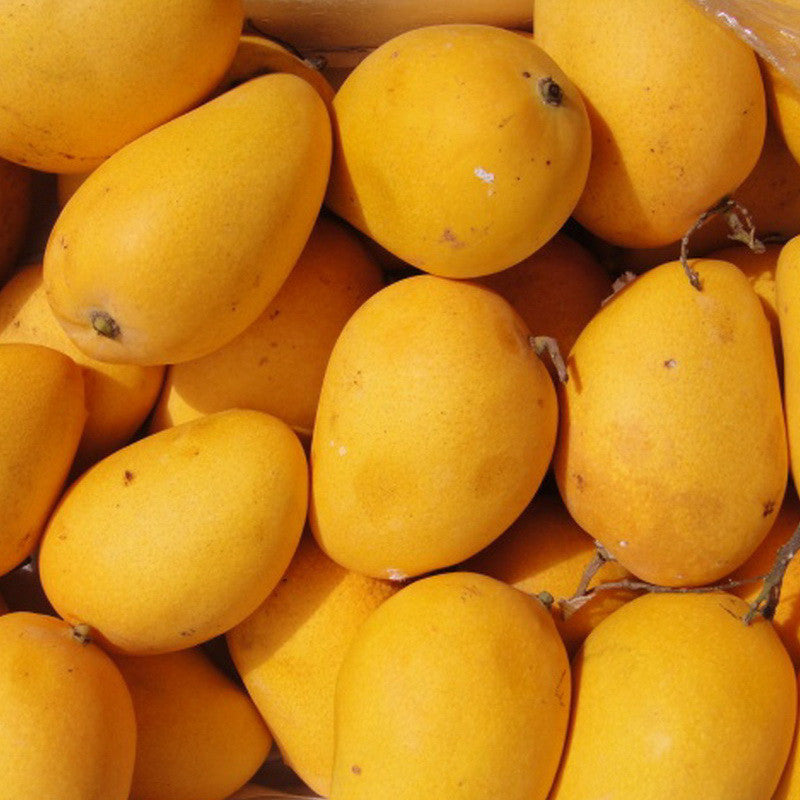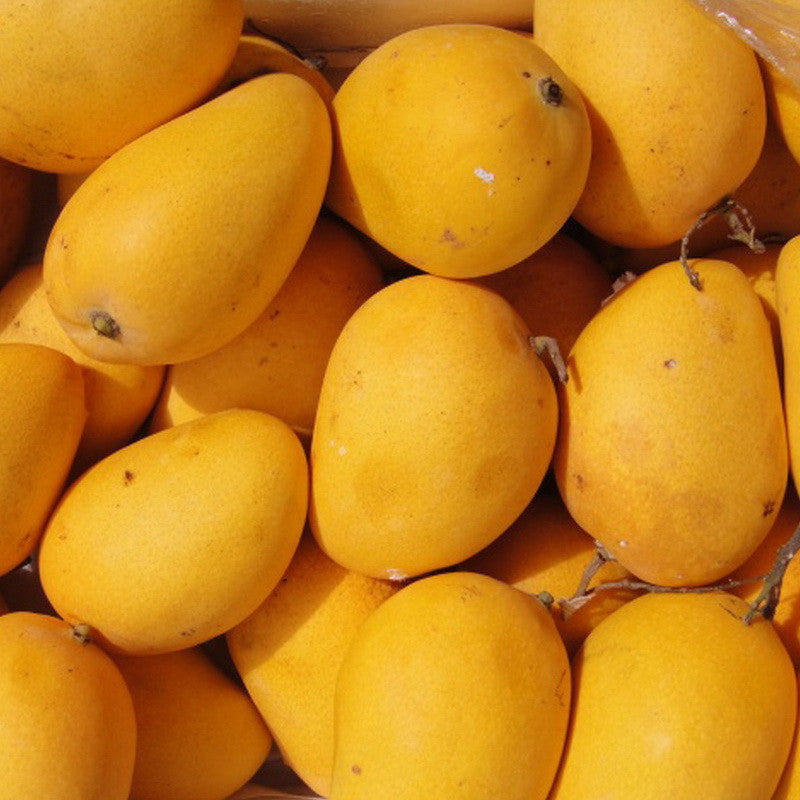Plantparadise
Mango Chinna Rasam(Grafted) - Fruit Plants & Tree
Mango Chinna Rasam(Grafted) - Fruit Plants & Tree
Couldn't load pickup availability
SPECIAL CHARACTER OF CHINNA RASAM MANGO - This mango is one of the most popular varieties of mangoes in South India. If it is ripened naturally then it can beat the all mangoes even we can say it can beat the Alphonso, in taste as well as the amount of juice per mango. Fruit juice is high in fibre. It is a regular bearer mainly suitable for coastal area. The size of this mango is medium to small.
Mango botanically known as Mangifera indica from Anacardiaceae family. Mango have different names like King of tropical fruits, Ambassador of Indian fruits, Aam etc., Flowers produced in terminal panicles, each flower is small and white with five petals with a mild, sweet fragrance. Tropical and subtropical climate is identical for mango growth. Ideal temperature is 26℃-35℃ for optimum growth and yield of mango. Mangoes are rich source of Vitamin A & C.
MAXIMUM HEIGHT - Upto 6-8 meter, some time more or less depends on pot size and place of its location.
BLOOMING YEAR - In South India starts from November and in North India starts from February to March. It takes 100-150 days from flower to fruit development.
FRUITING TIME- Edible fruiting will start after 2 year after purchase. It starts from march and available up to mid-August.
GROWING TIPS - It grows best in moist, tropical and subtropical climates.
- If you want to grow in pot then minimum 25*25 inch of length & width and maximum size depends on you.
- You can plant at any time of the year, but most preferable time is June to July in low rainfall areas and October to November in high rainfall areas.
- It grows well in all soils but it shows good results in well drained soils with Ideal pH range is from 6.5 to 8.
- Manures and fertilizers should be applied in 2 month before the flowering seasons. Fertilizers are applied 45 to 90 cm away from the trunk.
- No watering is done 30 days before harvest.
- Mango trees need higher doses of nitrogen when young, but after they begin to bear fruit, they need less. At that time, they need higher doses of phosphorus and potassium, which promote flowering and fruiting.
- Use a commercial organic fertilizer with a high percentage of potassium, such 5-8-10, for fruit-bearing trees, or apply these nutrients with organic materials. Compost is a good organic source of both phosphorus and potassium. You can also use rock phosphate, guano, blood meal or bone meal to provide phosphorus, and seaweed to provide potassium.
INSIDE THE BOX
| S.No. | PRODUCT NAME | DIMENSION |
| 1. | Mango Fruit plant | 1-3 Feet Height |
| 2. | Growing Pot (Black color) | 6 Inch |
*above specifications are for indicative purpose only, actual dimensions may slightly vary.
PLANT CARE
LIGHT CONDITION - More than 6 hours of Direct Sunlight.
WATERING SCHEDULE - Water when the topsoil(2-3 inch) feels dry to touch. Always maintain moisture near the root zone specially during flowering season. Stop watering before 1 month of fruit harvest because it reduces the sweetness in mango.
SOIL TYPE - The soil should be well drained, fertile & rich in organic content.
FERTILIZER APPLICATION - Initially upto 1 year apply any organic fertilizer once in a month. After full establishment apply any organic fertilizer(2-3 times in a year) or before the flowering season.
PLANT PROTECTION - In mango main problem is Alternate bearing. It could be controlled by using Paclobutrazol for non-bearing fruit trees during first fortnight of September will induce flowering and fruit set yield during off years.
INITIAL CARE FOR 10-15 DAYS JUST AFTER RECEIVING YOUR PLANT
- Remove the Packaging Materials carefully.
- Press the soil in the pot & add additional soil(garden mix) if necessary.
- Maintain moisture in the pot, Do not over water it may kill your plant, so make sure that the soil should be dry between watering.
- Provide support with stick/moss stick(vine plant) in order to make straight growth, for needed plant only.
- Make sure that plants get enough direct bright light for 10-15 days & do not go for immediate transplanting(minimum 1-2month)
- Just prune if any branch of the plant is get damaged in transit. It happens very rare.
Materials
Materials
Shipping & Returns
Shipping & Returns
Dimensions
Dimensions
Care Instructions
Care Instructions


